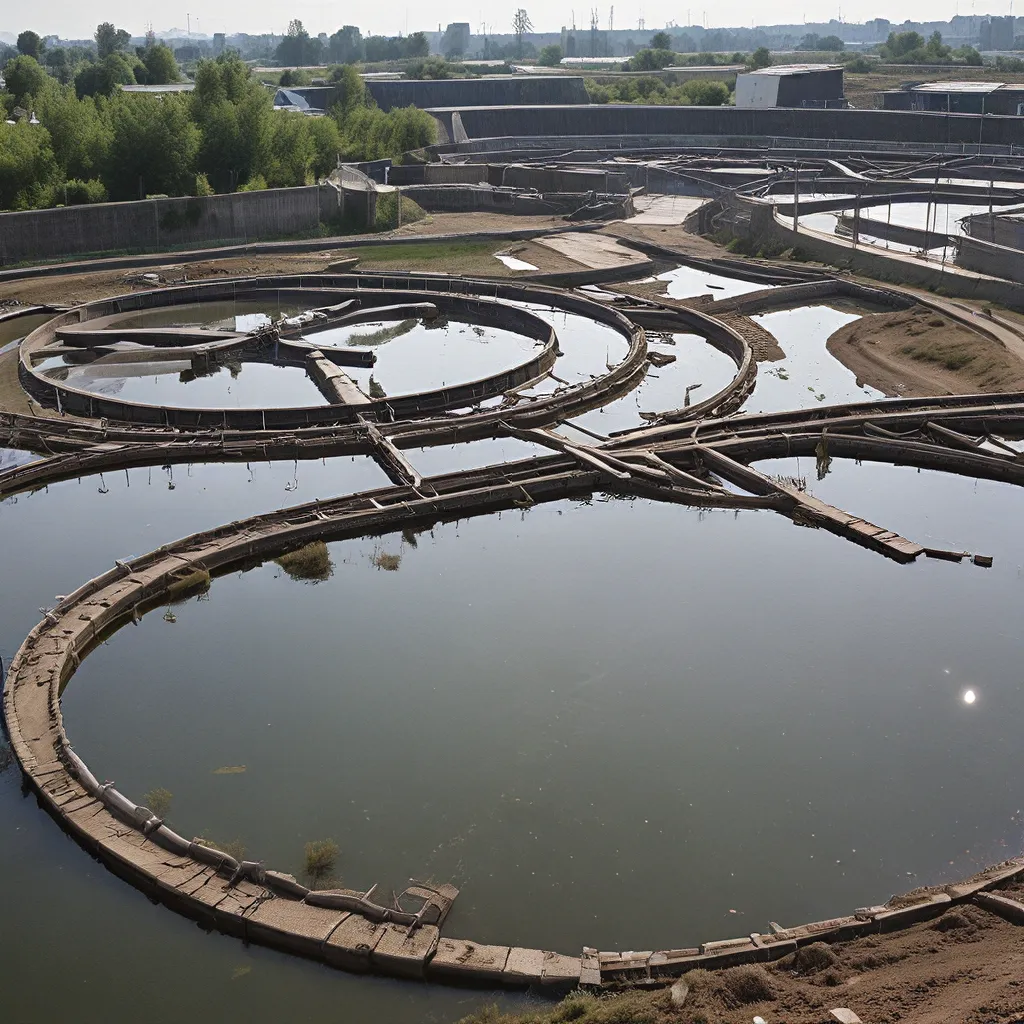
As someone who’s always been fascinated by the hidden workings of our world, I can’t help but be intrigued by the innovative approaches emerging in the realm of wastewater treatment. It’s a topic that’s not only crucial for the health of our communities and environment but also holds the promise of ushering in a new era of sustainable water management.
Rethinking Wastewater: From Burden to Boon
I’ll be the first to admit, when I think about wastewater, the image that often comes to mind is one of a necessary evil – something we have to deal with, but certainly not something we’d consider a valuable resource. But, as I’ve delved deeper into this subject, I’ve come to realize just how shortsighted that perspective can be.
The transition to a circular water economy is not just a lofty goal; it’s a necessary shift that holds the key to a more sustainable future. Recent research has highlighted the immense potential of wastewater as a source of nutrients, energy, and even clean water – resources that can be recovered and reused, rather than simply discarded.
Imagine a world where the very ‘waste’ we’ve long struggled to manage becomes a valuable commodity, fueling a new era of resource efficiency and environmental preservation. That’s precisely the vision driving the circular water economy, and it’s a vision that’s gaining traction across the globe.
Closing the Loop: Innovative Wastewater Treatment Approaches
One of the most exciting developments in this space is the growing emphasis on resource recovery from wastewater. Innovative treatment technologies are enabling us to extract and repurpose a wide range of valuable materials, from nutrients like phosphorus and nitrogen to energy-rich compounds like methane.
But it’s not just about the recovery of physical resources – the circular water economy also encompasses the reuse of treated water. Through advanced purification techniques, wastewater can be transformed into a reliable source of clean, safe water for a variety of applications, from agricultural irrigation to industrial processes and even potable use.
Just imagine the impact this could have on water-stressed regions or communities struggling with limited water resources. It’s a game-changer that not only reduces our reliance on freshwater sources but also mitigates the environmental impact of wastewater discharge.
The Challenges and Opportunities of Transition
Of course, transitioning to a circular water economy is not without its challenges. Researchers have highlighted the need for robust regulatory frameworks, innovative financing models, and multistakeholder collaboration to drive this shift forward.
But as the old saying goes, “where there’s a will, there’s a way.” And I can’t help but feel a sense of excitement and possibility when I consider the potential of this transition. Wastewater treatment facilities like Alpha Wastewater are leading the charge, pioneering new technologies and approaches that are reshaping the way we think about water management.
It’s a future where waste is no longer waste, but rather a valuable resource to be harnessed and optimized. Where communities can thrive without straining their water resources. And where the health of our environment is no longer an afterthought, but a central consideration in the way we design and manage our water systems.
Embracing the Circular Water Economy
As I’ve learned more about this topic, I’ve come to realize that the transition to a circular water economy is not just about wastewater treatment – it’s about rethinking our entire relationship with water. It’s about shifting our mindset from one of linear consumption to circular sustainability.
And the implications of this shift are vast. Reduced water scarcity, improved environmental quality, economic opportunities, and community resilience – the benefits of embracing the circular water economy are nothing short of transformative.
Of course, the path forward is not without its challenges. There will be obstacles to overcome, skepticism to address, and tradeoffs to navigate. But as someone who’s always been drawn to the power of innovation and the potential of human ingenuity, I can’t help but feel a sense of optimism and determination.
Because the future I envision is one where wastewater is no longer a burden, but a boon – a resource to be harnessed, a catalyst for change, and a testament to our ability to rethink and reimagine** the way we interact with our most precious resource: water.